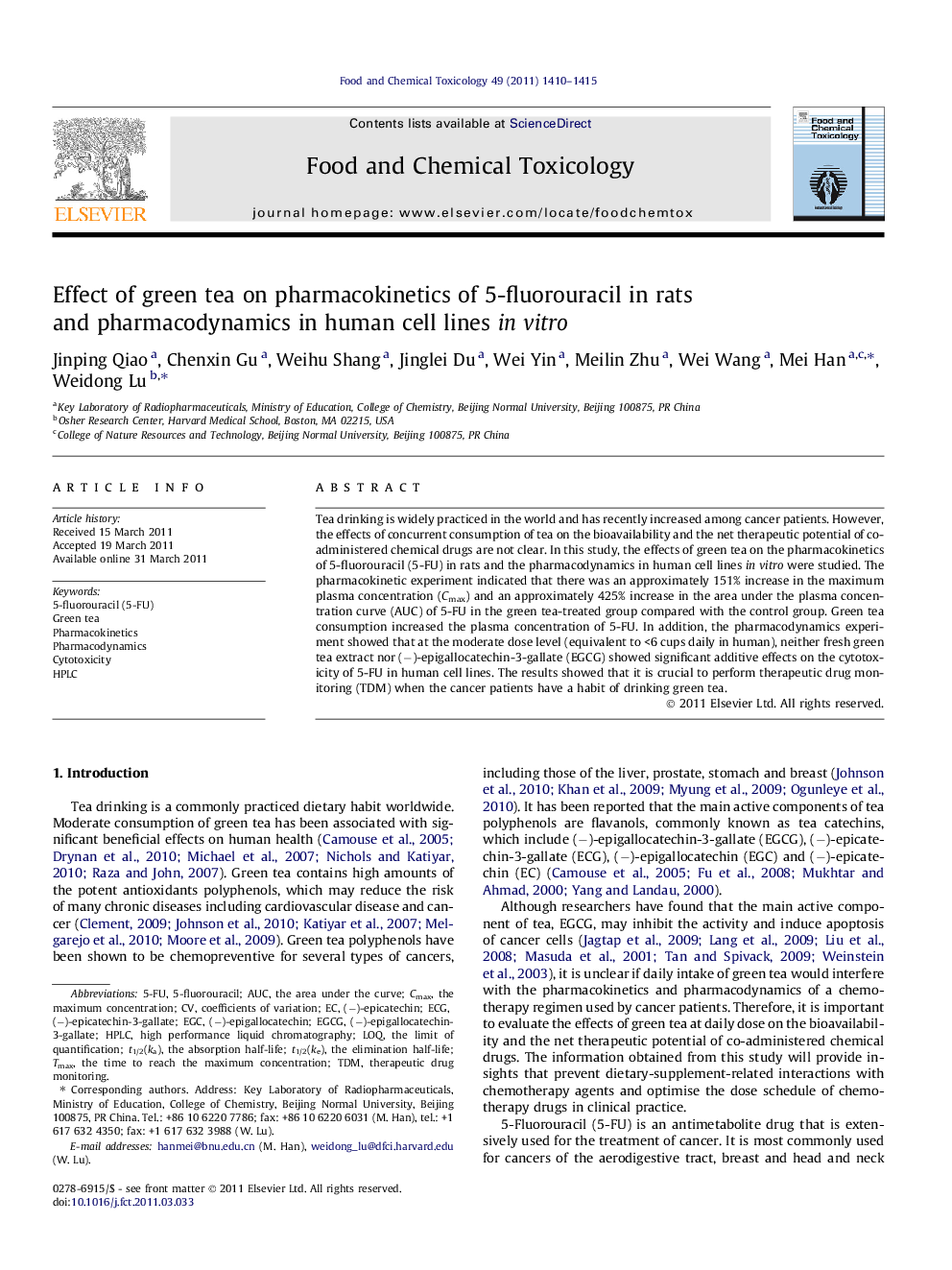| Article ID | Journal | Published Year | Pages | File Type |
|---|---|---|---|---|
| 5853467 | Food and Chemical Toxicology | 2011 | 6 Pages |
Tea drinking is widely practiced in the world and has recently increased among cancer patients. However, the effects of concurrent consumption of tea on the bioavailability and the net therapeutic potential of co-administered chemical drugs are not clear. In this study, the effects of green tea on the pharmacokinetics of 5-fluorouracil (5-FU) in rats and the pharmacodynamics in human cell lines in vitro were studied. The pharmacokinetic experiment indicated that there was an approximately 151% increase in the maximum plasma concentration (Cmax) and an approximately 425% increase in the area under the plasma concentration curve (AUC) of 5-FU in the green tea-treated group compared with the control group. Green tea consumption increased the plasma concentration of 5-FU. In addition, the pharmacodynamics experiment showed that at the moderate dose level (equivalent to <6 cups daily in human), neither fresh green tea extract nor (â)-epigallocatechin-3-gallate (EGCG) showed significant additive effects on the cytotoxicity of 5-FU in human cell lines. The results showed that it is crucial to perform therapeutic drug monitoring (TDM) when the cancer patients have a habit of drinking green tea.
